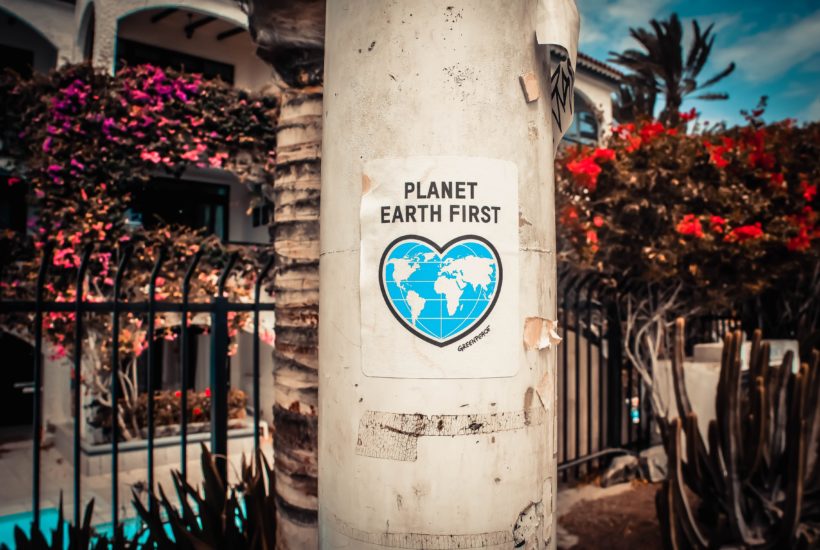Featured
How are sustainable labels awarded and what they stand for
There is no shared definition of the concept of “sustainable finance”, which leaves a wide margin of interpretation when it comes to sustainable investments. In Europe, there were listed no less than nine different labels and 800 labelled funds, for a total of 60,000 funds. Two of them, namely the French “SRI label” and the Belgian “Towards Sustainability” label, are leading the way.

The objectives of sustainable investments can vary considerably. The wide variety of vocabulary used (sustainable, responsible, SRI, ESG, green, climate, eco, transition) makes it difficult for most investors to read the growing number of responsible investment product offerings.
Sustainable labels have been developed to address this lack of clarity and make sustainable financial products easier to understand. They attest to the quality of the process.
Read more about the multitude of sustainable labels and find the most important economic news with the Born2Invest mobile app.
Sustainable labels cannot rationalize what is originally fragmented
Moreover, they are seen as a tool to influence standards, regulations, and possibly a future European eco-label. Currently, many EU countries are vying for the limelight to impose their vision of responsible or green investments and participate in setting the standard.
In Europe, there were listed no less than nine different labels and 800 labeled funds, for a total of 60,000 funds (as of December 31st, 2019). Although this represents only 1% of the total market, the number of labeled funds has doubled in one year.
Of the nine sustainable labels, five can be qualified as ESG (Environment, Social and Governance) and four as “green”. However, the boundary between the ESG label and the green label is blurred. For example, ESG labels include the letter “E” for the environment and therefore also take into account green criteria, whereas green labels impose a minimum of ESG criteria/standards. Between the two types of labels, it is a question of proportion and priority rather than a fundamental distinction in the approach.
In the jungle of labels, two of them, namely the French “SRI label” and the Belgian “Towards Sustainability” label, are leading the way, with around 300 labelled funds each, i.e. nearly three-quarters of the total number of labelled funds and 90% of the total assets managed by labelled funds.
Commonalities and specificities of the sustainable labels
The awarding of a label means that the fund has committed to excluding certain activities or companies that do not meet environmental, social, and governance (ESG) objectives. In concrete terms, this means that most of the time fossil fuels are excluded and that the investment process and portfolio holdings are transparent. Of course, the types of fossil energy, the thresholds applied and the ESG selection criteria vary.
Some sustainable labels introduce additional information requirements such as impact reporting. In addition, some labels have defined a point system with minimum requirements and an incentive to develop and move towards best practices.
Sustainable labels impose a minimum share of green revenue but again the thresholds vary from 10% to 37%
Each sustainable label is therefore a unique combination of commonalities and specificities often reflecting national preferences and views on responsible investment. The diversity of existing labels complicates their use in the marketing of investment funds outside their domestic market and raises many questions: which label to choose, should one opt for several labels, what are the costs, etc.? We see more and more funds with several labels (some have up to three), which raises a common sense question: what is the impact of a label on the investment philosophy of the fund?
Aiming for a sustainable label as a certification of the fund’s intrinsic quality and choosing the label that corresponds to the fund’s philosophy and helps to convey the message of sustainability makes sense. It also makes sense at a time when selling in different countries has become indispensable. Will a future European label put an end to the recent multiplication of national labels? For the time being, only an eco-label is being considered, but it will only replace green labels, not ESGs. There is still a long way to go before considering and then reaching an agreement on a European ESG label.
To try to transform the jungle of labels into a useful tool for investors, why not build on the point system used by some labels and define minimum requirements applicable throughout Europe; then award additional points according to specific criteria that could vary from one country to another and thus satisfy national specificities while maintaining a consistency and readability that is sorely lacking today.
__
(Featured image by PhotoBoards via Unsplash)
DISCLAIMER: This article was written by a third party contributor and does not reflect the opinion of Born2Invest, its management, staff or its associates. Please review our disclaimer for more information.
This article may include forward-looking statements. These forward-looking statements generally are identified by the words “believe,” “project,” “estimate,” “become,” “plan,” “will,” and similar expressions. These forward-looking statements involve known and unknown risks as well as uncertainties, including those discussed in the following cautionary statements and elsewhere in this article and on this site. Although the Company may believe that its expectations are based on reasonable assumptions, the actual results that the Company may achieve may differ materially from any forward-looking statements, which reflect the opinions of the management of the Company only as of the date hereof. Additionally, please make sure to read these important disclosures.
First published in allnews, a third-party contributor translated and adapted the article from the original. In case of discrepancy, the original will prevail.
Although we made reasonable efforts to provide accurate translations, some parts may be incorrect. Born2Invest assumes no responsibility for errors, omissions or ambiguities in the translations provided on this website. Any person or entity relying on translated content does so at their own risk. Born2Invest is not responsible for losses caused by such reliance on the accuracy or reliability of translated information. If you wish to report an error or inaccuracy in the translation, we encourage you to contact us.

-

 Impact Investing5 days ago
Impact Investing5 days agoCDP Approves €1.5 Billion Package to Boost Industry, Renewables, and International Development
-

 Crypto2 weeks ago
Crypto2 weeks agoUniswap and BlackRock Partner to Launch BUIDL in DeFi
-

 Impact Investing7 hours ago
Impact Investing7 hours agoThe Sustainability Revolution: Driving a Net-Zero, Nature-Positive Economy
-

 Biotech1 week ago
Biotech1 week agoNew Molecular Clues Explain Aggressive Neuroblastoma and Point to Targeted Treatments






















